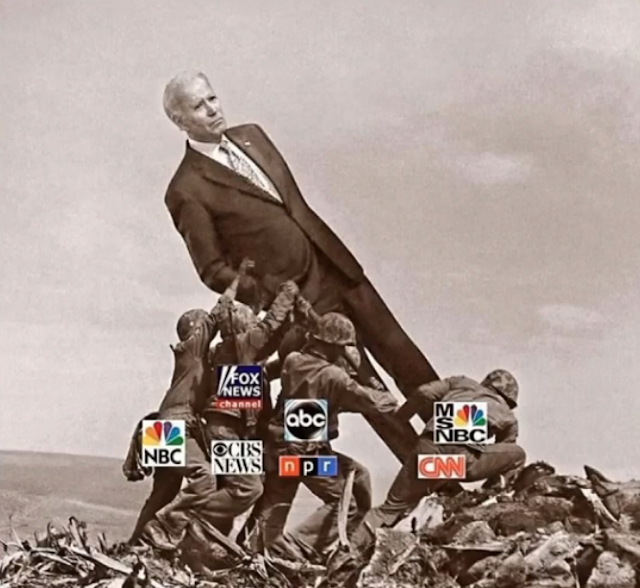Bloomberg Op., Topic: The Maria Butina Case Is Not About Spying
"Why did U.S. authorities bother to pursue a Russian gun-rights activist for activities they could easily have ignored? The answer should worry you."
Excerpt:
"Two things stand out in this week’s plea deal of Maria Butina, the Russian citizen branded by U.S. media as an “accused spy.” The description of her offense by federal prosecutors doesn’t mention any link to Russian intelligence services and the plea agreement says she’s willing to cooperate with the U.S. authorities despite knowing she’ll almost certainly be deported to Russia.
The 30-year-old gun-rights activist and former graduate student at American University networked so inventively and tirelessly in Washington that she aroused the suspicion of U.S. counterintelligence and was arrested in July. She found herself in the media spotlight as an unlikely femme fatale until prosecutors walked back one of the original accusations — that she’d been willing to trade sex for getting ahead in her influence operation.
Excerpt:
"Two things stand out in this week’s plea deal of Maria Butina, the Russian citizen branded by U.S. media as an “accused spy.” The description of her offense by federal prosecutors doesn’t mention any link to Russian intelligence services and the plea agreement says she’s willing to cooperate with the U.S. authorities despite knowing she’ll almost certainly be deported to Russia.
The 30-year-old gun-rights activist and former graduate student at American University networked so inventively and tirelessly in Washington that she aroused the suspicion of U.S. counterintelligence and was arrested in July. She found herself in the media spotlight as an unlikely femme fatale until prosecutors walked back one of the original accusations — that she’d been willing to trade sex for getting ahead in her influence operation.
After spending five months in jail, Butina admitted having served as an agent of the Russian government without duly notifying the U.S. attorney general. That summoned memories of 10 people accused of being Russian sleeper agents in the U.S. in 2010, including Anna Chapman, who later became a minor celebrity in Russia, who pleaded guilty to the same offense. But the U.S. government’s complaint against that group stated unequivocally that they had been sent to the U.S. to lie in wait until the Russian foreign intelligence service decided to use them.
No such accusation is being made in Butina’s case. She’s only admitted that she’d been working in the U.S. at the behest of Alexander Torshin, who resigned as deputy governor of the Russian central bank last month, and that she knew that he was coordinating his instructions for her with the Russian foreign ministry.
The Chapman group didn’t plead guilty in exchange for cooperating with U.S. authorities; that would have made the intelligence assets traitors to Russia, the country to which they were deported immediately after sentencing. Instead, they were swapped for four people Russia had accused of working for Western intelligence services in Russia, including the victim of a botched poisoning in the U.K. this year, Sergey Skripal.
Butina, by contrast, promised to cooperate and will remain behind bars answering questions until at least mid-February, when the date of her sentencing may be determined in the next court hearing. It would have been hard for a Russian spy to agree to such terms knowing she’d be sent home: There, she’d almost certainly face prosecution for spilling the beans, or worse.
Butina isn’t being treated as a spy. If she were, any cooperation with the authorities would have been secret and she would have been offered protection, not warned bluntly of deportation — or she would have been swapped, like the 10 “sleepers.”
Her testimony in the next two months could change things, of course. But at this point, she's accused only of unofficial diplomacy and lobbying at conferences, dinners and other events that were by no means clandestine. She’s admitted helping Torshin organize a back channel for the Russian government to the U.S. gun lobby and conservative politicians close to it.
The gun connection is important here. Both Torshin’s and Butina’s history with the gun-rights movement in Russia is well established. It’s a hopeless cause there. Russia has a higher murder rate than any country in Europe or Asia except the Philippines. A recent poll showed that 89 percent of Russians oppose liberalizing gun sales. In a way, it was natural for the gun enthusiasts to seek allies in the U.S., given how few they had at home. They may have hoped that their joint cause would counterbalance the U.S. mistrust of President Vladimir Putin’s regime."
• • •
Country vs country: Russia and United States compared: Crime stats - Russia vs United States Crime Stats Compared

Comments
Post a Comment